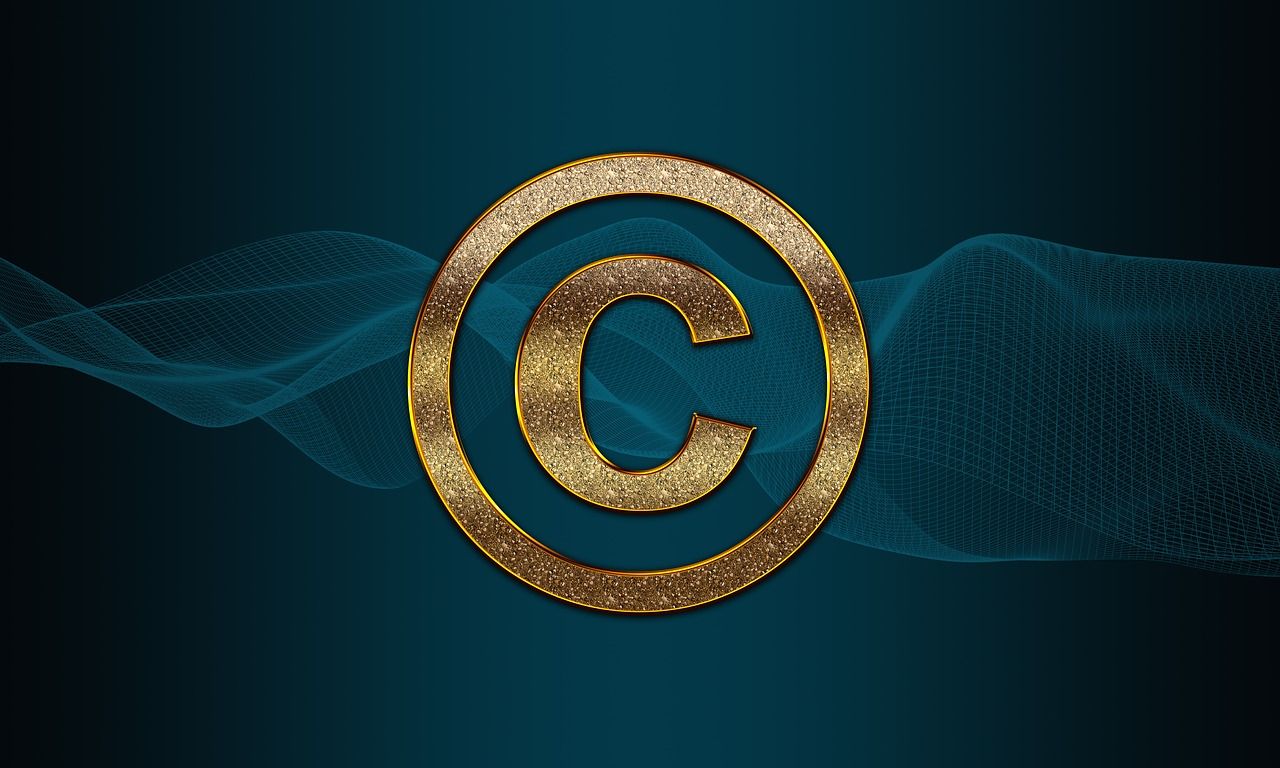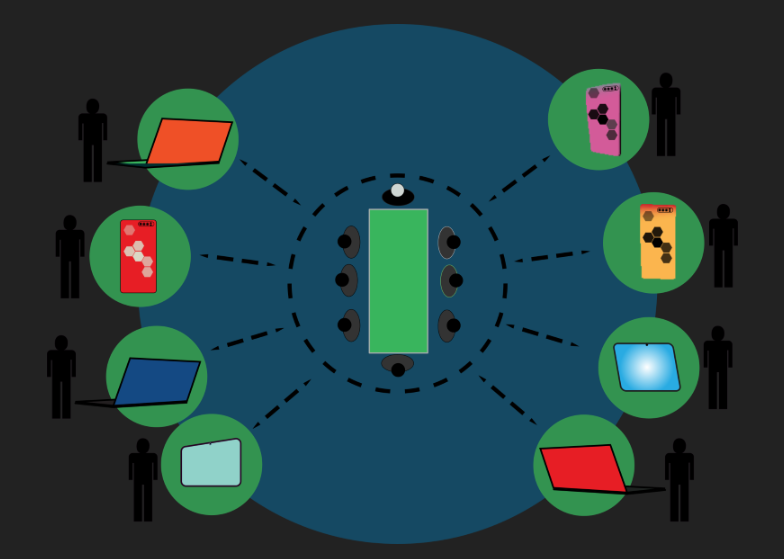How To Protect Your Online Course From Piracy?
 Platform Review
Platform Review

Learn what are the best ways that you have available today to protect your online courses from the threat of digital piracy.
If you are a course creator, or thinking of becoming one, probably one of your biggest fears is:
What if someone just flat-out steals my courses?
What if someone downloads, shares, and resells my content illegally, without me knowing about it?
Trust me, I know that feeling.
I'm a course creator myself and I've been creating courses since 2016, and I still have those exact same thoughts cross my mind occasionally.
It goes without saying that after pouring your heart and soul into a course, building, launching, and promoting it, the last thing you want to discover is that someone has copied your hard work and taken credit for it.
Not only is this a moral violation of your rights as the course owner, but it can also harm your chances of making money from your intellectual property, sabotaging your business efforts.
The truth is that once your content is published online, it becomes vulnerable to being stolen, copied, or accessed by people who have not paid for it.
That is a fact, and I will explain in non-technical terms exactly why, and will tell you how to deal with it in the best possible way.
While there is no guaranteed way to completely prevent piracy, as a course creator, there are many things you can do to make it way more difficult for people to pirate your online course.
In this article, I'll walk you through a few tips, tricks, and techniques on how to protect your online course from piracy, as well as some ideas for what you might be able to do if you find yourself in that situation.
You can also check out all the free guides that you have available here at the Course Creator Academy by clicking on the Academy link on the top menu bar.
Here are the two main guides of the Academy, make sure not to miss those:
- How To Create An Online Course (Complete Guide, PDF Included)
- How to Sell Online Courses? The Ultimate Guide
So, how to protect your online course from piracy?
Here are a few ways to protect your courses:
- use watermarks
- Register your copyright
- Use a secure hosting platform
- Use talking head videos
- Sell access to a community
So without further ado, let's dive right into these tips.

Why Is Digital Piracy Still an Unsolved Problem?
Long story short, there is still today no surefire way to prevent your content from being copied and redistributed.
This is a problem that remains largely unsolved, and it plagues not only the online course industry, but also much larger industries such as the movie entertainment industry or the music industry.
Even the largest video streaming platforms from the biggest companies in the world are not immune to this problem, no matter how many billions they spend in trying to solve this problem.
The truth is that, still today, it's trivial to download content from platforms such as Netflix, Disney+ or Amazon Prime, after you are logged in and get access to the content.
But why is that, why is it such a difficult problem to solve?
I will try to explain this to you in non-technical terms.
You see, if you can watch the content, you can steal it, it's that simple! 😉
Let's think about this for a second.
If you can watch the content, it means that the content is no longer encrypted, at least at that exact moment, on your computer, right?
The content needs to be decrypted first, before being displayed on a monitor.
And at that exact moment, is when the content is vulnerable to theft.
The theft can be done with more or less sophisticated technology, by using some sort of easily installable software. It could be as simple as doing a screen recording of the content.
Trust me, this is something trivial to do, anyone can do it.
And there is nothing any company in the world can do about this, it's an unsolved problem.
But that does not mean that you can't do anything at all about it.
Here are some simple techniques you can use.
Use Watermarks
Using watermarks is one of the most common and effective ways to protect your online course from piracy. A watermark is a mark or lettering that can be added to any digital content as a precautionary measure.
It is usually transparent so that the visual content is not distorted.
As a course creator, you can use this on your course content, whether images, videos, downloads, etc.
More interestingly, you can add some flair to this by creating a unique watermark with your name, brand's logo, learners' information, website URL, or a combination of these.
This gives your content personality and a sense of ownership, which may help deter piracy or theft.
Even if your content is illegally shared, the watermark makes it clear that it is yours, and this may even drive traffic to your site, which will benefit you.
But most of all, the watermark will make it super easy to prove to some third-party platform or authority that the video is indeed yours.
Register Your Copyright

Copyright is a legal term used to describe the rights that someone has over their intellectual properties.
In other words, copyright grants you legal rights to, and protects your original, creative work while allowing you to monetize it solely.
If you are an online course creator, you can use this to protect your videos, images, texts, logo, or entire content from piracy.
Copyrighting is much easier and straightforward to set up than a trademark or other legal protections, and it serves as clear proof of ownership of your online course assets.
This will come in handy in the event of piracy or theft, as it will save you a lot of time and trouble proving that you are the rightful owner of the content.
Use a Secure Hosting Platform
Another effective way to protect your online course is to host it on a secure video hosting platform.
A secure hosting platform does more than just allow you to host your courses and content as a course creator; it also automatically protects your videos so they cannot be embedded or played back anywhere other than within your program.
In other words, you can easily prevent people from accessing that content if they are not on your website and do not have your permission.
This means that the only people who can access your content are students who have met the prerequisites and are fully authorized, meaning that they bought the course and can access the course premium pages.
Furthermore, videos you upload cannot be downloaded; they can only be viewed unless you mark them as eligible for upload.
When it comes to a secure hosting platform, OnlineCourseHost.com is an excellent choice for hosting your videos and online courses.
Aside from providing a secure space for your content, it also provides unlimited video hosting and bandwidth, unlimited content storage, and other features at a ridiculously low cost.
Use Talking Head Videos
Creating talking head videos is another technique to protect your online course from piracy.
If you're unfamiliar with talking head videos, they are recordings in which you show yourself on the screen directly speaking to your audience.
This could also be an effective way to prevent online theft because anyone watching the video will clearly see that it belongs to you, which may discourage people from stealing your content in the first place.
You can even go so far as to include your name, brand name, or any other relevant information about yourself at the start or end of your course videos.
Also, keep your website URL in the screen footer at all times so that even if someone decides to pirate or copy your content, viewers will still see you and your details and may even click on your website link to buy directly from you.
Aside from protecting your course, talking head videos can be extremely beneficial for online course engagement.
Since your students can see your face, it is way easier for them to follow your course and pay attention to what you're saying.
Sell Access To a Community

One of the ways outsiders gain access to your courses, at times, may not exactly be illegal or malicious.
Your students can simply grant these individuals access by sharing their course log-in information with them.
But as a course creator, this is bad for business.
One way to avoid this is to make your course highly interactive, so that the value of the course is not 100% linked to the content of your video lessons.
Aside from uploading your videos or content, you can include private sessions, one-on-one coaching, Facebook group discussions, live Q&A sessions, webinars, and other features in your course that are only accessible to those who have paid for access.
You can even make these features the most valuable parts of the course, which cannot be shared or duplicated in any way.
Not only will this make your course truly valuable to your rightful students, but it will also enhance their learning experience.
It should be noted, however, that this approach does not completely eliminate piracy, but it certainly helps reduce it.
Conclusion
The truth is that no content on the internet is completely secure.
With piracy on the rise, it's nearly impossible to put a stop to it completely.
All platforms, including the largest, are vulnerable to this. So you are not alone in this.
So what can you do to prevent your online course from being pirated?
Here are some of the main measures you can take to avoid online course piracy:
- use watermarks
- register your copyright
- use talking head videos
- add value to the course beyond just the videos
By following these tips and techniques, your course will be in practical terms very well protected from piracy.
And if the content ever gets pirated, it's super simple to prove that it's indeed yours.
It will be very hard for the persons trying to steal your content to impersonate you, or try to claim that they are you.
One of the simplest ways to secure and protect your online course from piracy is to host it on OnlineCourseHost.com, where you will benefit from secure video hosting.
OnlineCourseHost.com is the ideal platform to consider for many course creators, especially if you're just getting started.
But, more than just a platform, we want to provide you with all of the information you need to successfully grow your online course business.
That is why we created the Course Creator Academy, where you can find everything you need to become a successful online course creator all in one place for free.
To get notified when new content is available here at the Academy, you can subscribe here to our weekly newsletter:
If you are looking to ask any questions on online course creation, you can reach me here on my Facebook group:
Join the Course Creator Academy Facebook Group
Ready to learn how to launch your first course on OnlineCourseHost.com? Here are the helpful guides for you to check out:
- Best Online Course Platforms (Ultimate Guide)
- How To Create An Online Course (In 15 Super-Practical Steps)
- How To Choose An Online Course Topic That Sells
- How To Record And Edit Your First Online Course
- Affordable Online Course Equipment - Complete Practical Guide
- How To Hire An Online Course Team
- The Ultimate Online Course Launch Checklist
- How To Create The Perfect Online Course Sales Page
- Create A Powerful Brand For Your Online Courses (In 5 Steps)
- How To Sell Online Courses? The Ultimate Guide
- How To Promote Your Online Course - Complete Guide
I hope you found this post helpful, let me know in the comments below what other topics you would like me to cover, or any questions that you have?
Thanks for reading… and enjoy the course creation process! 😉
Vasco Cavalheiro
OnlineCourseHost.com Founder & Online Course Creator








 Start Here
Start Here Course Creation Journey Step by Step
Course Creation Journey Step by Step  Course Creation Software Reviews
Course Creation Software Reviews Online Course Marketing
Online Course Marketing Course Creation Tips & Tricks
Course Creation Tips & Tricks Course Equipment
Course Equipment Online Course Marketplaces
Online Course Marketplaces Revenue Reports
Revenue Reports Best Practices
Best Practices Frequently Asked Questions
Frequently Asked Questions Platform Reviews
Platform Reviews